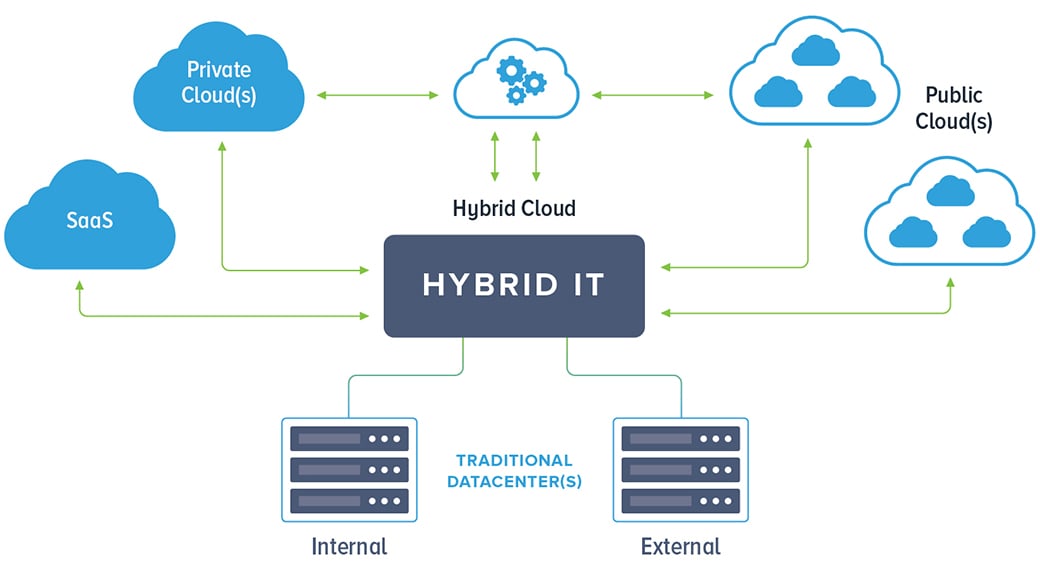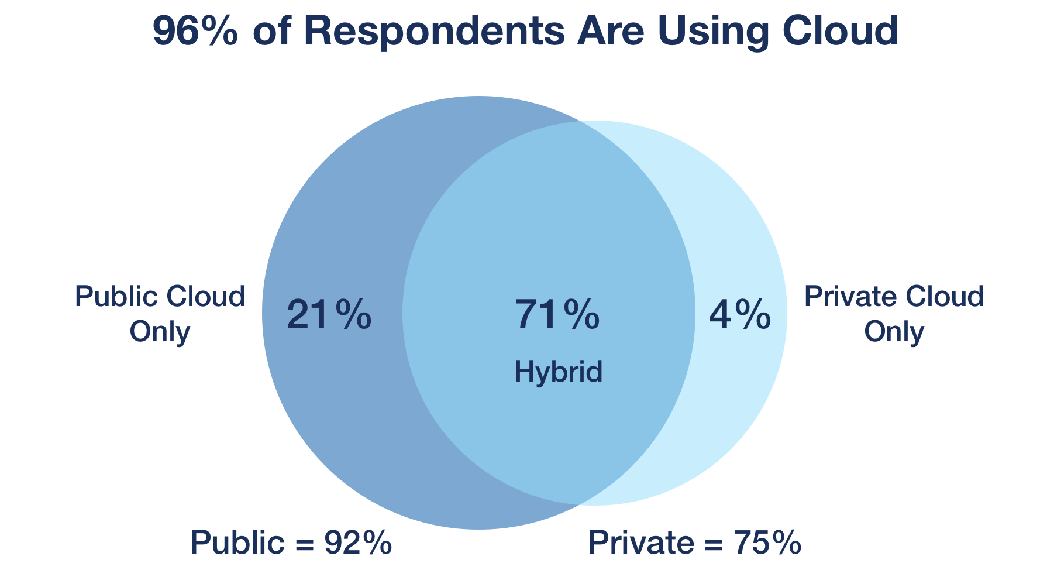Hybrid Cloud Solutions for Small Business – Yay or Nay?
The first two words that cross my mind whenever I think of hybrid cloud solutions for small businesses are versatility and flexibility. Implementing the term can result in two situations. One, there will be a profound and disruptive, positive impact on business and two, organizations will hardly notice that anything has changed. The following post simply emphasizes how the hybrid cloud environment impacts businesses today.

Now you might be thinking how can it possible for businesses not to recognize any change with hybrid cloud implementation? It is, and that’s how it has to be. Businesses shouldn’t notice the cloud itself but all the improvements it enables. In fact, they must be aware of how much faster your competitors can roll out new apps. Such technology can be loathed or loved. Depending on the perspective you choose, the level of success can be determined.
Things to Consider Before Using Hybrid Cloud for Business
No matter how risky or time-consuming the changes required to enable hybrid cloud solutions for small businesses are, businesses need to take a step forward into the future. This also means that the traditional ways of protecting applications in purely on-premises environments won’t suffice in the hybrid cloud world. However, taking these measures will definitely reduce the risk and prevent environmental exposure and complexity. Before you take the leap to the hybrid cloud, first ensure that you have.
- API compatibility and management support.
- Strong network connectivity.
- A plan for application migration.
- A thorough understanding of the cost benefits for your company and essential factors such as load balancing and I/O requirements.
Hybrid Cloud Solutions for Small Business in Detail
At present, CIOs and CTOs are looking around for different ways to make the most out of such disruptive technologies. Prior to its implementation, it is essential to understand that the hybrid cloud is not a single commodity or location. The term can be successfully considered as an alternative cloud computing deployment model that involves a mix of public and private cloud environments. It does not only allow users to choose the appropriate workload for the appropriate environment but also allows them to shift workloads with the evolving needs of an organization.
Advantages of Hybrid Cloud
The adoption of cloud computing technology has increased at a fantastic pace. However, there are small businesses who, even today, have a disbelief in how hybrid cloud solutions for small businesses can enhance the entire IT environment.

The technology is successfully marketed to promote benefits such as improved efficiency, flexibility and even opportunity for expansion. Unfortunately, many of these benefits lack tangibility, often making it difficult to validate a move to the cloud.
Apart from this, the barriers to innovation are reduced. By adopting hybrid cloud solutions for small businesses, one no longer needs to spend significant capital to model a new service. Earlier, the cost associated with such a task would include capital expenditure for infrastructure, labor, and time for research, followed by more resources to install and maintain. As a result, it placed a lot of pressure on capacity management practices and perfect forecasting despite many uncertain variables. As a result, concepts can be easily tested without capital expenditure, prototyped in a cloud environment, then rapidly deployed and measured for success, etc.
What Could be the Overall Impact?
As organizations have started embracing mobile solutions to fuel more efficient, collaborative business strategies, they also need cloud-based solutions that allow employees to quickly access the tools they need while working on the go. Although mobile enablement of employees can provide a significant boost to each and every facet of the company’s day-to-day operations, this one, in particular, requires access to enterprise data, third-party software and real-time intelligence.

In addition to this, the Hybrid cloud solution for business even supports the digitization of tools, data, and other assets; it even provides a system for delivering solutions reliably and more securely. Now, employees will have better mobile access to digital tools and support than they would have had in the past. This will automatically improve the efficiency and productivity of workers, especially when they are out of the office.
A Better Foundation for IoT Integrations
Other than increased infrastructure and support, IoT solutions will play a central role in the future of enterprise operations. Moreover, it can act as a catalyst for operational efficiency, which can eventually reduce expenses and create more substantial profit margins. Now, implementing such solutions requires an environment that can manage and process enormous data streams traveling to and from IoT devices. In many cases, a hybrid cloud solution for business is a perfect solution.
from IoT technologies to leaning on public cloud resources to handle surges in resource demands while controlling which solutions have access to specific stored data. The Hybrid cloud for small businesses offers support like never before.
How Can One Forget Security?
There are times when experts worry about the liability created by connecting to the public cloud, but have you ever wondered if the same can be regulated to leverage its benefits without exposing your organization to its potential risks? Having a hybrid cloud system in place, one can quickly deploy a customized security strategy that gives them greater control over what data is stored where and who can access it at any given time. This is where professional cloud security services come into play, offering businesses the expertise and tools necessary to implement robust, scalable protection across both private and public cloud environments.
In fact, public clouds can be considered a valuable resource for certain types of data and solutions, but retaining some private cloud solutions or on-site data storage allows businesses to control and secure aspects of their storage and systems if they desire, allowing them to enjoy the best of both worlds.
Creating a Successful Hybrid Cloud for Small Businesses
Step 1 – Planning
This becomes pretty easy if your environment is not just well-protected but also comprises mobility and a testing suite or platform that is agnostic to the infrastructure your IT runs on. However, this can be achieved by simply designing (on-premises or cloud-based) with no protection dependencies tied to that individual platform. In addition to this, such platforms avoid introducing organizational risks while making any significant changes, thus providing the agility that makes the hybrid cloud solution for businesses so desirable.
Step 2 – Testing
Changes, whether internal or on-premises, made to the environment are bound to carry organizational risk. By testing, one can efficiently execute changes smoothly and successfully. The testing stage has to be included in the bedrock of any serious hybrid cloud strategy. Whether the applications absorbing infrastructure or platform changes happening, a successful hybrid will continue to test.
Step 3 – Future-proofing
Have you given any thought to how you can prove your decisions in the future while introducing new platforms into the IT environment? Of course, it is difficult to protect your applications once they are moved to a private/hybrid/public cloud platform. What if the new platform doesn’t meet your expectations? Can everything be moved again so quickly? It is essential to consider these pointers before making any potential changes in terms of hybrid cloud solutions for small businesses.
Final Words
So that’s all for now! For more information and updates regarding Hybrid Cloud Solutions for small businesses, follow the updates!



